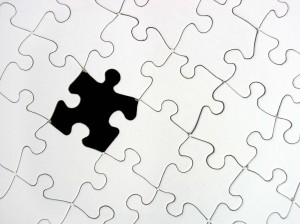For those who own alarm systems, whether they are video surveillance, access control, burglary, or fire protection, our systems watch over us and protect us around the clock.
But in today’s day and age, just about everything is connected to the internet. In many cases, this includes our alarm system. And like any device that is connected to the internet, if not taken care of properly, it can be at risk of attack from hackers.
“Attackers used an army of hijacked security cameras and video recorders to launch several massive internet attacks” said a recent news piece by the Wall Street Journal. Many times, these cameras were infected by pre-compromised routers that already existed.
Here are some tips about how to protect your alarm system as well
Router security: We recommend using WPA2 security for your router. Most routers, unless they are fairly old, are capable of this type of security. For more information on this, check out your router’s brand’s website – Belkin, Linksys, and Netgear are common brands.
Firmware updates: It is very important that any device that connects to the internet, from thermostats to alarm systems to routers to televisions to computers, always has the most up to date firmware. Each device’s manual or website will have instructions on how to do those, and if there is a phone application that interfaces with the device, you can often do it through the application.
Password protection: Many devices come with generic user names and passwords. These are easy targets for hackers. Make sure you change any default passwords, and try not to use the same password on multiple devices. It is most important that this is done on the router.
New hardware: According to Kenneth White, a security researcher and director of the Open Crypto Audit Project, “If the company that made your [device] isn’t selling that model anymore or offering security updates, that’s a good sign for you to throw it in the trash.”


 The world is an exciting, adventure-filled environment we all share. Even with all of the amazing opportunities it has to offer, the sad fact remains that there are inevitable and unavoidable dangers. We would all like to think our homes are impervious fortresses of safety, when in reality life is unpredictable, and most are unaware or don’t want to believe they are vulnerable in their own home. However, you can take preventative measures to significantly decrease your chances of disaster. Our homes are where our lives happen, what better reason to protect them? By installing a comprehensive custom security system, you would not only be protecting the physical structure of your home, but most importantly the welfare of your family. No one understands this better than our team of experts at
The world is an exciting, adventure-filled environment we all share. Even with all of the amazing opportunities it has to offer, the sad fact remains that there are inevitable and unavoidable dangers. We would all like to think our homes are impervious fortresses of safety, when in reality life is unpredictable, and most are unaware or don’t want to believe they are vulnerable in their own home. However, you can take preventative measures to significantly decrease your chances of disaster. Our homes are where our lives happen, what better reason to protect them? By installing a comprehensive custom security system, you would not only be protecting the physical structure of your home, but most importantly the welfare of your family. No one understands this better than our team of experts at 


 “There is no place like home.” —
“There is no place like home.” — 

 If you have a security system you might already understand the consequences of a false alarm. It is not something to be taken lightly and can have serious implications. False alarms can happen for any number of reasons and it’s important to understand why and how best to avoid them. No security system is perfect, and false alarms are bound to happen, but as end users and integrators it is our duty to try to minimize them. At
If you have a security system you might already understand the consequences of a false alarm. It is not something to be taken lightly and can have serious implications. False alarms can happen for any number of reasons and it’s important to understand why and how best to avoid them. No security system is perfect, and false alarms are bound to happen, but as end users and integrators it is our duty to try to minimize them. At 